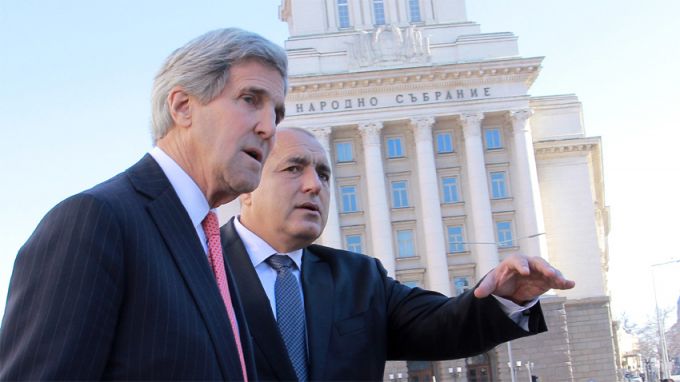
The Special Envoy and Coordinator for International Energy Affairs at the US Department of State Amos Hochstein held in Sofia a series of intensive discussions related to energy security. These issues were in the focus of US Secretary of State John Kerry’s visit to Sofia in January this year. In other words, the energy policy has become the major topic in the relations between USA and Bulgaria.
During the meeting with his Bulgarian hosts Mr. Hochstein brought a new accent into the bilateral dialogue. He pointed out that in the recent months Bulgaria’s cabinet has been making efforts to reach energy security in the whole Balkan region, rather than in Bulgaria only. Thus, Amos Hochstein made it clear that the USA regards Bulgaria as a regional factor and partner in the energy field. Moreover, Bulgaria’s President Rossen Plevneliev insisted before his guest that the establishment of the European Energy Union had to start from the Balkans and that the countries in the region should launch a common energy market, which would guarantee competitive prices of energy resources.
The main accent during the conversation between Amos Hochstein and his Bulgarian hosts fell on the diversification of gas supplies through the construction of reversible interconnections between the gas transferring systems of Bulgaria and its neighbors. Bulgaria already made progress with regard to the construction of its interconnections with Greece and Romania. The construction of the country’s interconnection with Serbia is also gaining momentum. Bulgaria also managed to provide financing which is to be used for the feasibility study of the future interconnection with Turkey. The progress achieved within several months only followed the official visit of US Secretary of State John Kerry to Sofia.
Amos Hochstein’s visit to Bulgaria was also in the vein of talks on the highest level. The talks between Hochstein and his Bulgarian hosts tackled the construction of a new nuclear unit at the Kozloduy power plant as well. Bulgaria already decided to install the latest generation of nuclear facility and signed initial agreement with US energy company Westinghouse. However, Sofia would agree to complete the construction of a nuclear unit under the American technology AP-1000 on the condition that Westinghouse provides the necessary investments. The US firm did not voice its intentions to provide financing, which raised considerations that Bulgaria would either start looking for an alternative investor, or change its government policy regarding the construction of the seventh unit of the Kozloduy NPP. However, it became clear after the meeting between Amos Hochstein and representatives of Bulgaria’s Ministry of Energy that the construction of the nuclear unit would cost USD 5.3 billion and that Kozloduy nuclear power plant would provide only USD 400 million of the total sum. The agreement ends all speculations about the price of the new nuclear unit. However, the questions surrounding the new project still remain. Apparently, talks about the construction of the seventh unit of Kozloduy NPP will continue.
English version: Kostadin Atanasov
Bulgaria must receive targeted defense funding. This is what Bulgarian MEP from the European People's Party Andrey Novakov has requested from the new EC Defense Commissioner. In addition to the topic of the tariffs that US President Donald Trump..
Türkiye commemorates the victims of the devastating earthquakes of 2023 Türkiye honored the memory of the victims of the earthquakes of February 6, 2023, when 7.7-magnitude tremors in southeastern Turkey levelled entire..
In mid-January this year, eight Bulgarian cultural and educational associations from Bosilegrad, Tsaribrod, Zvontsi, Vranje, Pirot and Niš sent an open letter to the President of Serbia, Aleksandar Vucic, the Ombudsman, Zoran Pasalic, the Delegation of..
“In the European Parliament, the word ‘compromise’ does not necessarily carry a negative meaning. Compromise refers to finding common ground in a highly..

+359 2 9336 661
